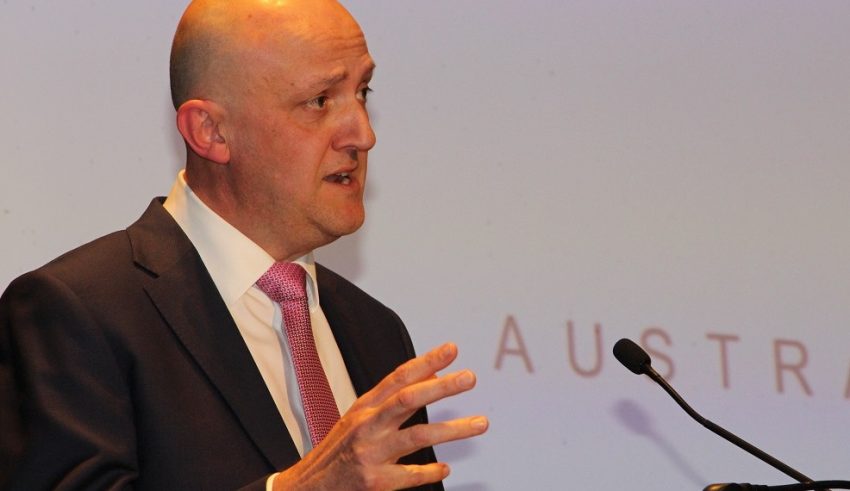
“My boy, being a top spook is not compatible with being a media tart,” former ASIO director-general David Irvine is reported once to have responded jovially to a question from a journalist.
And indeed, the “top spook” — one of very few ASIO employees who are allowed to be named in public — is by necessity a behind-the-scenes role most of the time.
Irvine was a true Renaissance man. Charming, witty and erudite, he was grieved by many when he died in 2022 and left behind two quite fascinating books he wrote on the subject of Javanese puppetry as a testament to just how much esoteric fun he would have provided as a media tart.
But it was his successor, Mike Burgess, who has had the federal parliament’s undies in a bunch over the last 24 hours with his announcement that there has been A TRAITOR IN ITS MIDST.
Mr Burgess has adopted, since his arrival in the role, a new and slightly more “open kimono” (to borrow a phrase popularised by Malcolm Turnbull) approach to ASIO’s public profile.
Every year, he invites powerful stakeholders to ASIO HQ to deliver the agency’s Annual Threat Assessment. And every year, he’s talked about the growing risk of espionage and the risk to the nation of increasingly competent attempts by foreign agencies to co-opt political figures.
But this year, he made it personal. Without naming names, Mr Burgess declared that a particular former Australian politician had been co-opted, successfully, by a squad of foreign spies dubbed “the A-Team”.
(Side note: This nickname sounds oddly like the nicknames that groups of disgruntled backbenchers give themselves when they’ve been overlooked for promotion and gather to eat noodles, bitterly, to concoct revenge plots. Other examples: “The Cardinals”, “The Monkey Pod Bunch”, etc. Is this relevant? Hard to say, stick it on the inboard with the bits of string, etc, could be important.)
Back to Burgess.
“This politician sold out their country, party and former colleagues to advance the interests of the foreign regime,” he said. “At one point, the former politician even proposed bringing a prime minister’s family member into the spies’ orbit. Fortunately, that plot did not go ahead but other schemes did.”
Back when Mr Burgess’ lecture was all about the security of the nation in general, it didn’t make a colossal splash on the hill.
So how do you get politicians interested in something? Make it about politicians. And the addition of the demonstrative pronoun (“This” politician) made all the difference.
Dawn had barely broken before former treasurer and US ambassador Joe Hockey broke cover to demand, with quivering indignation, that Mr Burgess name the guilty party, lest all former MPs be smeared by implication.
Thursday morning, always a kind of loose day in democracy’s Australian home, was pleasantly given over to a Cluedo-type game that everybody loves: “Who’s The Guilty Party, And Whose Resignation Can We Now Demand?”
Was it the former member for X, in the dumpling bar, with the drab-attired attaché? Or was it Senator Y, at the chessboard, with the Russian oligarch?
The audible passion in Mr Hockey’s demand for disclosure suggested, some rookies thought, a Labor villain. This theory seemed to gain support with opposition leader Peter Dutton’s agreement, under questioning by amateur gumshoe Ray Hadley on Sydney radio, that he had his money on a Labor former pollie with previously reported links to China. But the opposition spokesman on these matters, James Paterson, declined to call for a name. And then Alex Turnbull — son of former PM Malcolm — piped up to news.com.au that he’d been sounded out by dodgy spy types a number of times.
And look, it’s not as if, historically, Australian politicians have proved massively difficult for foreign powers to approach.
ASPI in 2018 reported that the Chinese-owned telco Huawei — for which former politicians of various stripes have worked over the years — was the biggest donor of trips for Australian politicians in the previous eight years. When Australia’s former trade minister Andrew Robb retired, he walked straight into a lucrative job with Landbridge, the Chinese company that somehow now runs the Port of Darwin in a development for which various tiers of government are still blaming each other.
And when approached, are we ENTIRELY confident that our federal representatives are inviolable links in a chain of tactical steel? I mean, not suggesting this was in anyway a spy thing, but the time in 2013 when three senior Libs accepted Rolexes worth hundreds of thousands of dollars from a Chinese pot-noodle billionaire in Parliament because they assumed they were fake is … well, it doesn’t inspire confidence.
Weirdly — and the judge involved says this case has nothing to do with the ASIO situation — a Victorian businessman was jailed yesterday for trying to influence Alan Tudge, former Liberal minister, who accepted an oversized cheque for a hospital in his electorate but is not accused of any collusion.
Birthday wish in doubt
March 2 is a big day for Labor politics. The PM, his treasurer Jim Chalmers, and skills minister Brendan O’Connor will all mark their birthdays. Also, it’s the by-election in Dunkley, a seat mourning its late representative, Labor’s Peta Murphy.
By-elections are always stress-tests for governments, and this one will occupy the minds of all three birthday boys — the PM, because obviously, Mr O’Connor because Ms Murphy was a valued friend in his home state, and Mr Chalmers because it’s his Stage 3 tax rewrite that will be branded either a shocking breach of trust or a triumph for middle Australia.
It’s likely verdict looks more like: “It’s complicated”. This week, both parties were furiously quoting precedent for by-elections to manage expectations. Team Albanese briefed that the average by-election swing against a Labor government is 7 per cent so anything below that is sweet as a nut. (Coalition spinners responded “paff!”. The average swing against a government at by-elections is 3.6 per cent so anything north of that means TROUBLE.)
The margin is 6.3 per cent so, while it’s likely a Labor retain, it’s a dead certainty that there are hundreds of hours of toss-arguing ahead.
Before the caravan moves on, though…
One of Peta Murphy’s final parliamentary acts was her leadership of a parliamentary committee whose recommendations have attracted wide praise.
Read here about the committee’s recommendation to ban gambling ads during sporting events, a policy that opposition leader Peter Dutton also put forward in his first budget reply speech.
Murphy’s report has sat on government desks for months and is showing little signs of going anywhere. Earlier this week, the Teal crossbencher Zoe Daniel reminded the PM about Murphy’s report (which Tim Costello is rather wonderfully calling Murphy’s Law) and suggested that a little less conversation, a little more action would be a nice way for Labor to honour Murphy’s legacy. No response yet.


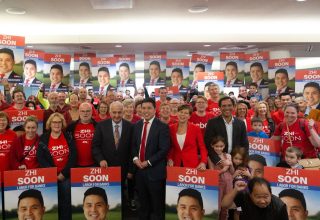
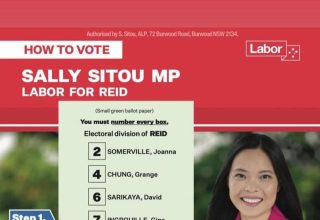
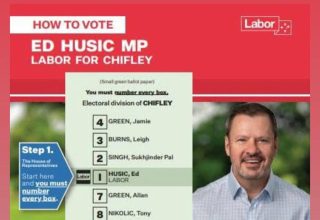


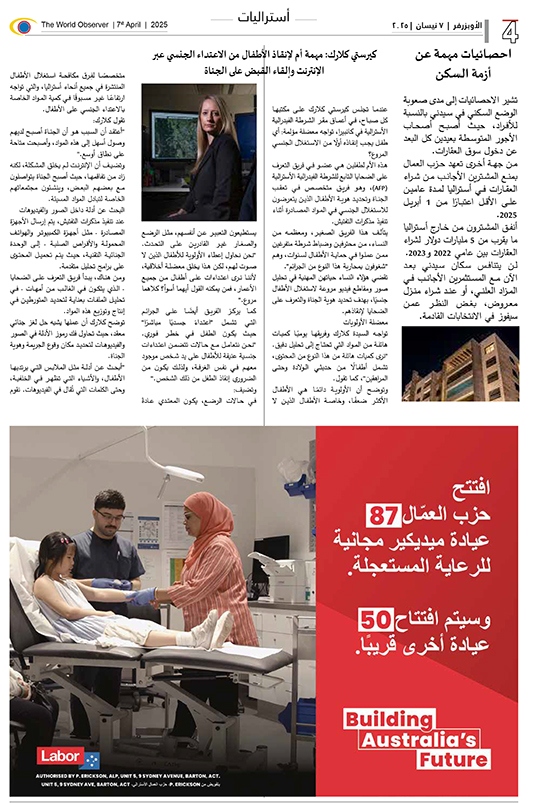































 The World Observer Media produces a daily online newspaper, a daily Arabic online newspaper and a monthly printed Arabic/English magazine and a weekly printed Arabic/English newspaper.
The World Observer Media’s mission is to entertain and educate all generation from the Ethnic Communities in Australia, who are interested in local, national and foreign information.
The World Observer Media produces a daily online newspaper, a daily Arabic online newspaper and a monthly printed Arabic/English magazine and a weekly printed Arabic/English newspaper.
The World Observer Media’s mission is to entertain and educate all generation from the Ethnic Communities in Australia, who are interested in local, national and foreign information. 


